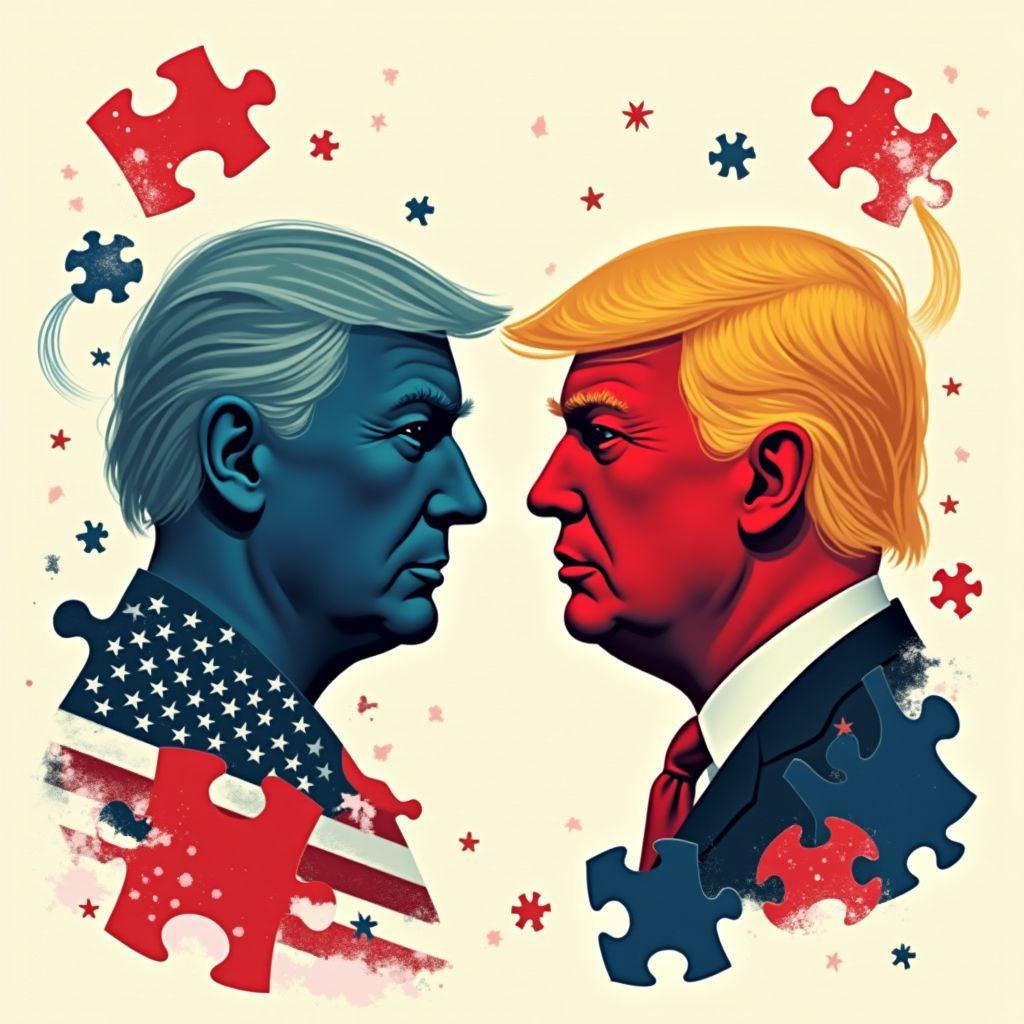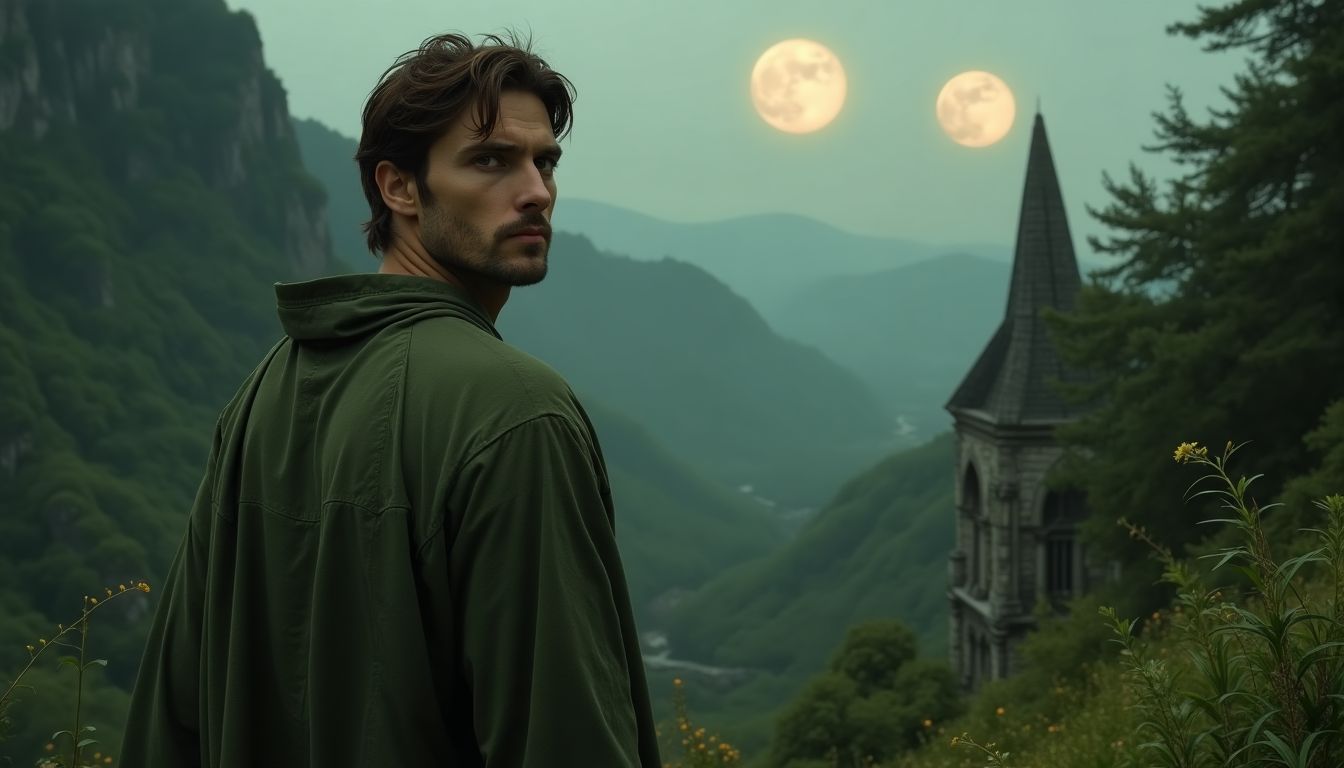Jefferson's words serve as a guiding light in the tumultuous arena of global diplomacy. As the world anticipates the potential return of Trump 2.0, this quote resonates with the challenge of balancing pragmatic relationships with unwavering principles. In particular, the intricate and often precarious dance of U.S.-Russia relations comes into sharp focus, leaving many to wonder: what lies ahead for these two superpowers?
In this article based on Zeihan on Geopolitics's video, we will explore the geopolitical complexities and potential diplomatic strategies that might redefine the relationship between the United States and Russia under a proverbial Trump 2.0 administration.
The Russian Dilemma: A Matter of Geography and Survival
The geopolitics of Russia is defined by its geography—vast, borderless, and vulnerable. Since the early days of the Tsars, Russia's strategy has been one of expansion, a necessity born from a fear of invasion. The Russian territories are shielded only by expanses like the Arctic Ocean or the Baltic Sea, lacking natural barriers that offer protection from intruders. Historically, this compelled Russia to stretch its dominion across swathes of Europe and Asia.
However, the dissolution of the Soviet Union saw Russia's control over these advantageous buffers evaporate. Over the past three decades, Russia has engaged in a series of military operations, with the current conflict in Ukraine being the most recent—not merely in a chronological sense, but as an extension of an entrenched strategic doctrine.
A Demographic Ticking Time Bomb
Russia's demographic issues have laid the groundwork for its urgent military strategies. The country's birthrate took a nosedive in the 1980s, leading to what experts termed a "death cross" in the 1990s, where deaths significantly outnumbered births. As the 2020s dawned, it became clear that Russia was racing against time, attempting to broker military solutions while it still had manpower to spare. Waiting until 2030, when their youth would no longer be adequately populous, was never a viable option for Russia.
The video by Zeihan on Geopolitics emphasizes that any armistice or peace agreement would merely serve as a reprieve, allowing the nation moments to regroup before pursuing further regional ambitions. This perspective challenges the notion of a peaceful resolution, suggesting that Russia's strategic narrative is deeply embedded in both urgency and survival.
The Trump Factor: A Negotiator or A Wild Card?
Donald Trump's ability to "stop the war in 24 hours" is a bold assertion that carries the hallmark of his self-assured rhetoric. What proposed solutions could the former President leverage, and how might these align with—or contradict—the broader geopolitical objectives?
For Trump's team, the notion of freezing the conflict along present lines and delaying Ukraine's NATO ambitions resonates loudly. Such a plan, however, is gauged as unacceptable from Russia's vantage—they simply do not have the luxury of time that a 20-year pause suggests.
The fascinating element here isn't the plausibility of Trump's claims, but the implications of his abrupt diplomatic style. Historically, Trump's foreign policy engagements seemingly operated outside the conventional framework, marked by unpredictable unilateral decisions that left allies and adversaries alike speculating about his next move.
A Russian Perspective on Trump
There's no denying that Russia harbors its own opinions about Donald Trump. Despite their initial optimism during his first term—where they leveraged his tendency toward isolation from key advisors—the current geopolitical reality may require a recalibration. Trump's willingness to engage directly, cut through red tape, and disrupt status quos, paints an interesting picture in the context of U.S.-Russia negotiations.
The Russians, having once capitalized on Trump's predilection for undisciplined engagements, must now navigate a more nuanced second term, should it come to pass.
Conspiracy Theories and Reality Checks
As is typical with geopolitics, conspiracy theories abound. One such theory suggests that Russia's decision to strike Ukraine was a reaction to perceived weaknesses in the Biden administration. However, the decision was a calculated necessity dictated by geopolitical and demographic factors, independent of international postures.
The strategic rationale was clear: if NATO were to disband under Trump's hypothetically successful withdrawal, Russia would face a strategic heaven—taking Ukraine without resistance, setting the stage for further incursions.
Trump 2.0: Potential for Surprise or Status Quo?
In global diplomacy, history has demonstrated that the relationship between a country's leader and external powers can shape not only international dynamics but also the fate of nations. As Trump signals his return, what might a second term mean for U.S.-Russia relations?
Despite the Russians' attempts to court Trump, they might have erred in their approach. As other world leaders continue to court Trump, the Russians’ stand-offishness could cost them, overlooking the pivotal role of Trump's emotions and gratified egos in policy-making. While their reluctance to engage in the usual political dance risks ostracizing them, it also challenges the established norms of international negotiations.
And thus, we stand at the brink of an era—Trump 2.0 might bring new dramas to global relations, leveraging the interplay between personal relationships and statecraft.
Concluding Thoughts
The dense fog of geopolitics is as obfuscating as it is fascinating. The speculative future of Trump's impact on international relationships, particularly with Russia, exemplifies both the volatility and immutable nature of these interactions. Will Trump reshape ambitions, redefine U.S.-Russia relations, and adhere to the principle of swimming with currents while standing firm on rock foundations?
As you digest these insights, it's worth considering: How will the dance of diplomacy evolve? What role do personalities play in such grand schemes? As always, the Shining City on the Web awaits your thoughts. I invite you to join the debate—share, comment, like, and perhaps become a permanent resident, or even a citizen, of our vibrant digital republic.
Wait! There's more...check out our fascinating short story that continues the journey: The Loss That Brought Him Here
Disclaimer: This article may contain affiliate links. If you click on these links and make a purchase, we may receive a commission at no additional cost to you. Our recommendations and reviews are always independent and objective, aiming to provide you with the best information and resources.
Get Exclusive Stories, Photos, Art & Offers - Subscribe Today!


























Post Comment
You must be logged in to post a comment.